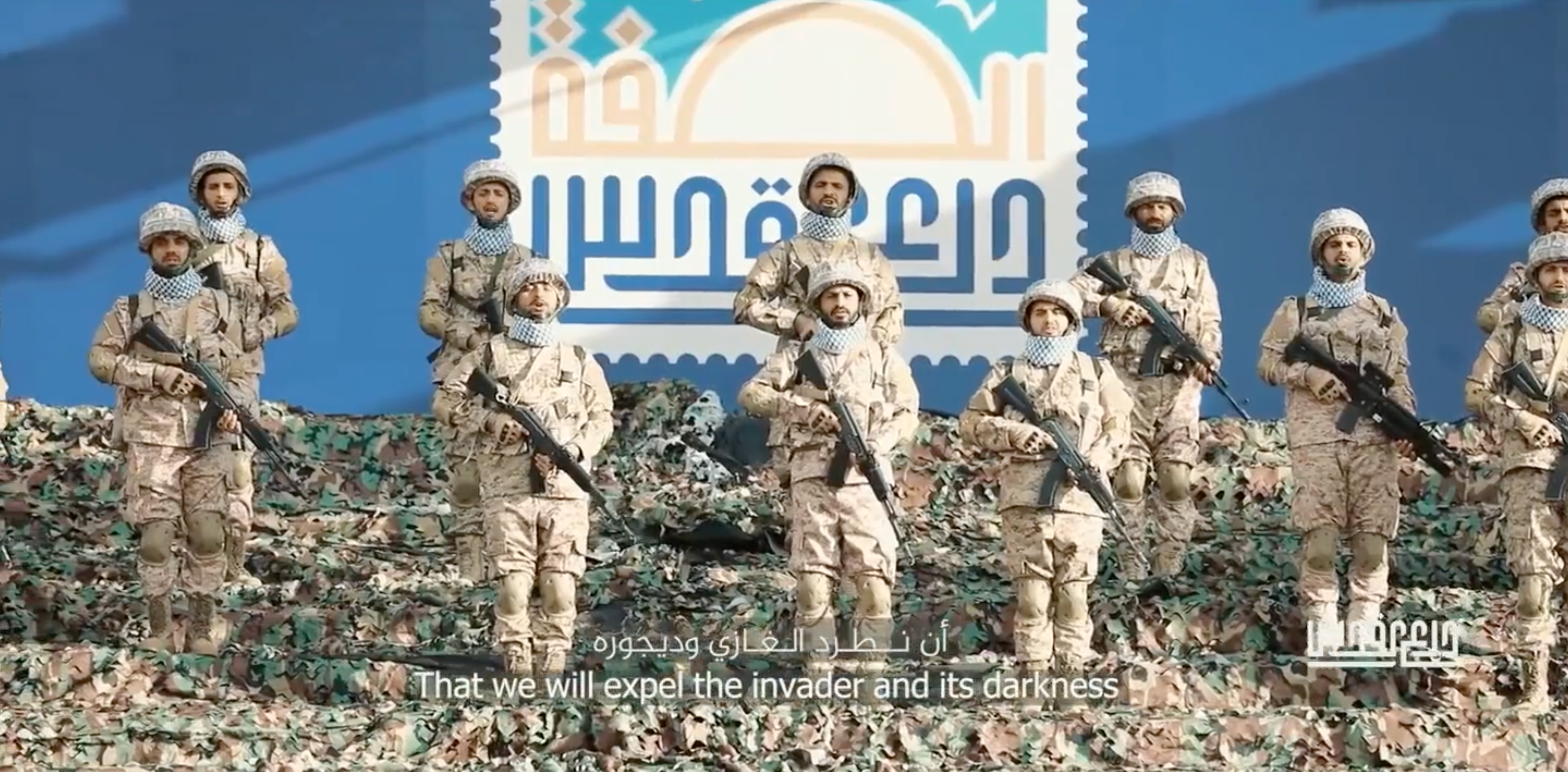Houthi fighters gather during a military maneuver near Sanaa, Yemen, on Oct. 30, 2023.
To announce their arm’s length entry into Israel’s war with Hamas — on Hamas’s side of course — the Houthi rebels, who control most of Yemen, not only launched a few missiles this week, but they also dropped a new single with a clear message.
This slickly produced music video features a small number of Houthi soldiers in Palestinian keffiyeh scarves, stoutly singing. brandishing weapons, performing military maneuvers, and stomping on burning US and Israeli flags. The lyrics promise a revolutionary liberation of Palestine, with divine help.
The debke-inspired beat — a musical nod of its own to Palestine, the wider Levant and Iraq — knocks for sure. But one detail that jumps out is that the video makes sure we notice — over and over — that the soldiers are sporting the flags and patches not only of the Houthi movement itself (for the first time at 00:17) but also of Iran and other Iran-backed groups, including Palestinian Islamic Jihad (00:16), Hezbollah (00:18), Syria (00:18-19), the Iraqi Popular Mobilization Forces (00:19), and the Iranian Revolutionary Guard Corps (00:20).
The message of all these visual shoutouts is clear: Although the Houthis are farther from the action than the other groups, they want you to know that they are still enthusiastic and powerful members of Iran’s region-wide “jihadist resistance" (2:29).
